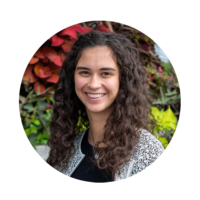Bias
-

Psychotherapies seem to be especially effective in low- and middle-income countries
Youth psychotherapies appear to be about twice as effective in low- and middle-income countries (LMICs) compared to high-income countries. However, disproportionately little research on youth psychotherapies has been conducted in LMICs; 90% of the world’s youth live in LMICs, but only 5% of randomized controlled trials of youth psychotherapies have been conducted in LMICs to date. Therefore, there is great need for more research on psychotherapies for youth in LMICs and for funding directed to LMIC-based investigators, clinicians, and organizations. We do not know why psychotherapies appear more effective in LMICs, but discovering why could help to identify ways of improving youth psychotherapies worldwide.
Read more -

Let’s Talk About the Need to Invest in Women Researchers and Leaders
Every International Women’s Day, there is a call to retain talented women in Science, Technology, Engineering, and Mathematics (STEM) fields, with strategies and proposals often given by influential organisations such as the United Nations. These proposals aim to steer improvement in workplace cultures and environments, and champion equity in the opportunities available to women across fields. The theme of this year’s United Nations International Women’s Day is “Invest in women: Accelerate progress.” This blog discusses the leaky STEM pipeline with a focus on why we need to invest in women researchers, and sharing my own experiences as a woman pursing mental health research.
Read more -

#InspireInclusion: Addressing the Undue Service Burden Placed on Women Faculty in Psychology
Psychology is often highlighted as a STEM field that has “overcome” the gender gap present in academia; while it is true that significant progress has been made in our field over the last 20 years, gender gaps still remain with regard to service responsibilities. This burden is one contributor to the well-established differences in publication and grant rates and the under-representation of women at the full professor level. This blog highlights literature on this topic and some strategies for overcoming this undue service burden.
Read more -

Inclusion and Advocacy for Women with ADHD: Addressing Inequities and Challenging Diagnostic Bias on International Women’s Day
March 8th, 2024 is International Women’s Day and this year’s theme is “Inspire Inclusion.” Unfortunately, women who hold multiple intersecting identities that are systemically oppressed world-wide are often excluded from discussions. One example includes women who are neurodiverse, and more specifically for this post, women with attention-deficit/hyperactivity disorder (ADHD). Women and non-binary folks are often excluded from appropriate diagnosis of ADHD due to bias in providers, boy/men-dominated symptoms in the DSM-5 (Barkley, 2023; Hinshaw et al., 2021), socialization to mask and internalize symptoms, and sexism and other forms of discrimination. As with most discrimination, this is even worse for women with ADHD who also hold other systemically oppressed identities. This blog will focus on how to increase equity for women with ADHD with concrete solutions for multiples systems that affect them.
Read more